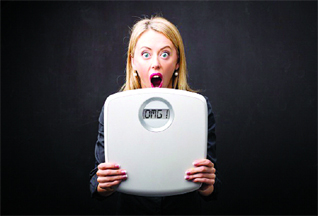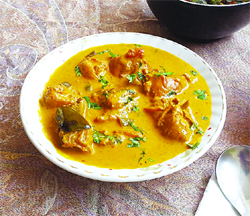
You’re eating too many calories
To lose weight, you need to take in fewer calories than you burn. This is called a calorie deficit. If you’re in a calorie surplus, your body stores those extra calories as fat. To ensure you’re consuming the right amount of calories, monitor your caloric intake, as well as physical activity. You can do this by keeping track of the calories you’re eating and burning through fitness apps or in a food log. A large 2006 study found that those who planned meals and tracked calories successfully lost weight and maintained weight loss more than those who did not.
You’re drinking too much alcohol
Alcohol is energy dense, meaning it contains a high amount of calories per volume. For reference, alcohol has about seven calories per gram, while a carbohydrate has four calories per gram. Alcohol can also reduce inhibitions about eating, making you more likely to choose high-calorie foods if you’re drinking, Chao says. A large 2018 study of overweight and obese people with type 2 diabetes found that people who drank heavily lost less weight over a four-year period than those who did not drink and decreasing alcohol consumption may improve weight management in people with diabetes.
You’re not drinking enough water
Drinking water can help you lose weight by boosting your metabolism and suppressing your appetite, thus making you feel fuller.
A study found that drinking 500 mL (two cups) of water increased energy expenditure by 24% in overweight or obese individuals. Additionally, a small 2015 study of obese people compared participants who drank two cups of water before meals with those who did not. It found those who drank water lost an average of almost three more pounds.





Be the first to comment